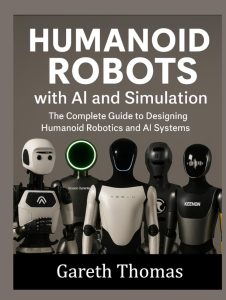The Future of AI A New Paradigm in Reasoning Models

OpenAI recently held a Developer Day in London, unveiling exciting updates about the future of AI reasoning models. These models are set to change how we approach complex tasks in science, technology, and healthcare. Understanding these changes can offer a glimpse into what the future holds.
The 01 series of reasoning models by OpenAI stand poised to redefine how we think about AI. Unlike previous models, these can plan and execute long chains of reasoning, promising breakthroughs that were once the stuff of imagination. This shift in paradigm is critical for advanced computational tasks.
OpenAI’s Vision for Reasoning Models
OpenAI’s new 01 series is a game-changer in AI reasoning. These models excel in tasks requiring long-term planning and reasoning. They’re far more advanced than their predecessors, such as GPT-3 and GPT-4, promising improvements we’ve eagerly anticipated. This development promises a future where AI doesn’t just assist but actively innovates.
Why Focus on Reasoning Models Matters
The ability to reason and plan long chains of events is crucial for tackling complex issues. These reasoning models are set to revolutionize industries by offering unprecedented capabilities. Advancements in AI are not just about incremental improvements; they’re about changing how we solve problems.
Upcoming Model Releases and Expectations
There’s a philosophical shift in how companies should approach AI development. Instead of patching existing models, enterprises are advised to anticipate future capabilities. OpenAI’s rapid progress suggests existing challenges may soon be resolved, creating new opportunities for innovation.
New Features in Model 01
Another notable feature is streaming, offering real-time answers as the model processes data, similar to progressive video loading. This feature ensures faster responses, particularly beneficial for complex queries. It marks a step towards more interactive and responsive AI systems that adapt in real-time to user needs.
Structured Outputs and Image Understanding
The potential for image understanding in the 01 series is an exciting development. Although still under wraps, this capability promises to enhance how AI models interpret and utilize visual information. Rapid advancements in this area could revolutionize applications related to image processing and visual data analysis.
Emerging Capabilities in AI Agents
The role of AI agents in the future is expanding, with potentials yet to be fully realized. As these technologies advance, they could significantly alter how we interact with systems and perform tasks, leveraging AI’s strengths in speed and scalability to handle complex operational needs.
Implications and Strategic Guidance for Startups
Sam Altman’s advice underlines the importance of aligning with AI’s future capabilities rather than its current flaws. Startups should consider how emerging models can address future needs, positioning themselves to benefit from AI’s rapid evolution rather than being hindered by present limitations.
The Importance of Strategic Alignment
Strategic alignment involves anticipating how AI can transform operations. By focusing on impending enhancements, companies can secure their competitive edge, ensuring they’re at the forefront of technological innovation and capable of leveraging new AI capabilities effectively.
A Glimpse into AI’s Rapid Evolution
As AI technologies evolve, staying informed about these advancements is vital for businesses and developers. This knowledge allows them to leverage new tools and capabilities, ensuring they remain competitive and innovative in a swiftly changing landscape.
The future of AI, guided by OpenAI’s groundbreaking work, is bright and full of potential. As these technologies advance, they promise to redefine industries and improve our daily lives. Embracing this change is essential for tapping into AI’s transformative power.








